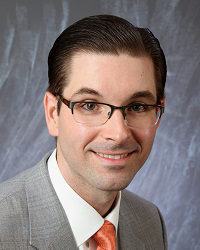

by David Flatt
Synopsis: David explores the meaning of the Golden Rule: “So whatever you wish that others would do to you, do also to them, for this is the Law and the Prophets” (Matt. 7:12).
In case anyone had the mistaken impression that Jesus was excluding certain people from the kingdom, He says,
Ask, and it will be given to you; seek, and you will find; knock, and it will be opened to you. For everyone who asks receives, and the one who seeks finds, and to the one who knocks it will be opened. Or which one of you, if his son asks him for bread, will give him a stone? Or if he asks for a fish, will give him a serpent? If you then, who are evil, know how to give good gifts to your children, how much more will your Father who is in heaven give good things to those who ask him! (Matt. 7:7-11).
Yes, some people are like dogs and pigs in how they react to the gospel; yet, anyone who asks, seeks, and knocks can come to the kingdom. Anyone who wants to come to the kingdom is welcomed with opened arms. Like a father who cares for his children, our heavenly Father knows how to provide for us beyond our comprehension. Regardless of who we are or what we have done, if we so desire, we can become part of God’s family.
In this last third of Jesus’ sermon, He warns us regarding passing judgment without mercy, identifies the potential rejection of the gospel by some, and gives a promise of the kingdom to those who genuinely want to become citizens. Each of these instructions represents actual scenarios in which we will likely find ourselves. There will be times when we need to engage those who are in sin. There will be times when we will encounter people who reject the gospel. There will be times when we will find people who are genuinely seeking the kingdom.
Nevertheless, how are we to approach people in these and other likely situations? Jesus simply says we are to treat others in the fashion we would want to be treated. The implementation of this fundamental principle is key to our ability to reflect the glory of God into the lives of those who do not know God.
Jesus explains how this principle is the foundation of the Law and Prophets. In other words, this is the foundation on which the entire system of belief and practice rested. There has never been such a short, yet, profound commentary on the Old Testament. Yes, the Law and Prophets often cited this principle as the reason for a specific command. Consider the following passages:
You shall do no injustice in court. You shall not be partial to the poor or defer to the great, but in righteousness shall you judge your neighbor. You shall not go around as a slanderer among your people, and you shall not stand up against the life of your neighbor: I am the LORD. You shall not hate your brother in your heart, but you shall reason frankly with your neighbor, lest you incur sin because of him. You shall not take vengeance or bear a grudge against the sons of your own people, but you shall love your neighbor as yourself: I am the LORD (Lev. 19:15-18).When a stranger sojourns with you in your land, you shall not do him wrong. You shall treat the stranger who sojourns with you as the native among you, and you shall love him as yourself, for you were strangers in the land of Egypt: I am the LORD your God (Lev. 19:33-34).
Thus says the LORD: “Let not the wise man boast in his wisdom, let not the mighty man boast in his might, let not the rich man boast in his riches, but let him who boasts boast in this, that he understands and knows me, that I am the LORD who practices steadfast love, justice, and righteousness in the earth. For in these things I delight, declares the LORD” (Jer. 9:23-24).
What shall I do with you, O Ephraim? What shall I do with you, O Judah? Your love is like a morning cloud, like the dew that goes early away. Therefore I have hewn them by the prophets; I have slain them by the words of my mouth, and my judgment goes forth as the light. For I desire steadfast love and not sacrifice, the knowledge of God rather than burnt offerings (Hos. 6:4-6).
Each of these passages from the Law and Prophets highlights love as being the moral and ethical foundation of Israel’s relationship with Jehovah. A lawyer once asked Jesus about how to inherit eternal life and how to define one’s neighbor (Luke 10:24-34). This familiar exchange is where Jesus teaches the parable of the good Samaritan. As far as the Lord was concerned, there was more to the Law and Prophets than just commandment keeping.
The Law and Prophets demanded mercy to be extended to our fellow man. If this self-righteous lawyer were beaten and robbed on the road to Jericho, a likely occurrence on that road, how would he want to be treated? Would he want to be ignored as did the priest and Levite who passed by on the other side? Or, would he want to be cared for as the Samaritan cared for the injured man? In this context, the answer is obvious. He, and anyone for that matter, would want to be treated mercifully. This being the case, we are to be merciful to our fellow man.
While Jesus says this rule is the foundation of the Law and Prophets, He was doing more than simply giving commentary on the Old Law. This rule, or the breaking of it, reflects the motive of our heart. It is to be the driving force for how we live and interact with other people. In essence, Jesus is telling us how to be human: how to bear the image of God in the world and reflect His glory.
The Golden Rule is simple. We teach this precept to our children as a moral north-star. The Golden Rule is profound due to the transforming consequence of its implementation. This rule makes everything about life in this world better. This rule enables us to fulfill the purpose for which God has created us.
To see how much the Golden Rule could improve our lives, we could apply it to the situations which Jesus has already considered in this sermon. For example, how would we want to be treated if we were living in sin (Matt. 7:1-5)? Would we want someone to humiliate us publicly? Would we want to be used as a punch line? Would we want someone to kick us if we were down? Of course, not. We would want someone to help us. With love and understanding, we would want someone to reason with us. Therefore, we are to treat those struggling in sin in the same manner that we would want to be treated.
How would we want to be treated if we were adamantly opposed to everything sacred and holy (Matt. 7:6)? We probably would want to be left alone. Jesus said not to give what is holy to the dogs or to cast our pearls before swine. When we find someone hostile to the gospel, leave him alone. If he has a change of heart, he will know where to go for help. There is no benefit in wasting time and energy by arguing or giving someone hostile more reason to be hostile. As strange as this scenario may sound, treat such people how you would want to be treated.
How would we want to be treated if we were anxiously searching for the kingdom (Matt. 7:7-11)? If we were asking, seeking, and knocking, how would we want to be treated? Would we not want someone to answer, guide, and open the door? We would want someone to take time to teach us. We would want someone to answer our questions or calm our reservations patiently. If this is true, then treat honest seekers of the kingdom in the manner that you would want to be treated.
Of course, the Golden Rule has more application beyond the immediate context of this sermon. For example, consider how this rule has the potential to transform marriages. Paul inserted this principle when he described the relationship between a husband and wife. He wrote that husbands were to love their wives as they love themselves. Husbands were to treat their wives as they would want to be treated: “In the same way husbands should love their wives as their own bodies. He who loves his wife loves himself. For no one ever hated his own flesh, but nourishes and cherishes it…” (Eph. 5:28-29). Marriages struggle and fail when the Golden Rule is ignored. In contrast, our marriages reflect the glory of God when the Golden Rule is practiced.
Also, the Golden Rule has the potential to transform those in positions of leadership. Leaders most definitely impact the lives and well-being of other people. Whether someone is an owner of a company, a supervisor at work, a high school coach, or an elder in a church, the Golden Rule must be the guiding principle of how leadership is approached.
Few leaders today have the Golden Rule as their foundation. Instead, pride and selfishness govern decision-making processes. Many leaders consider pride and selfishness to be perks of the job. Maybe they experienced mistreatment by someone who was once over them, and now they feel it is their turn to get theirs. This view of leadership has no place in the kingdom of God.
Jesus rebuked James and John for thinking this was how they could use leadership. The Romans might have ruled by pride and selfishness, but it would not be so in God’s kingdom (Mark 10:42-45). Rather, self-giving love was to be employed. Qualities of empathy, understanding, and consideration should be adopted. These are the hallmarks of a certain leadership style: servant leadership. Ultimately, the Golden Rule produces such leadership qualities. We need to look no further than Jesus to see servant leadership in self-giving motion.
Too often, pride and selfishness blind us from seeing and experiencing the transforming love of God. The Golden Rule is a strange and unusual way of living in the eyes of the world. Perhaps, we do not trust this rule, or we doubt the way of life that Jesus is describing. If such is the case, may the Lord increase our faith.
Remember the warning at the beginning of this chapter: “For with the judgment you pronounce you will be judged, and with the measure you use it will be measured to you” (Matt. 7:2). In the end, Jesus has promised to judge us according to how we treated other people. Those who practice judgment without mercy will be judged without mercy. If we want to become the light of the world and salt of the earth, we must adopt the Golden Rule into our hearts.
Author Bio: David and his family have labored with the Thayer Street congregation in Akron, Ohio since 2008. The church website is thayerstreetcoc.org. He can be reached at dflatt85@yahoo.com.

